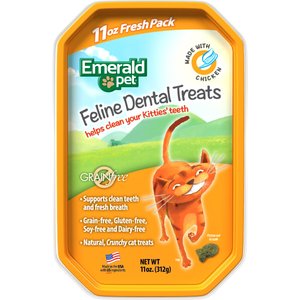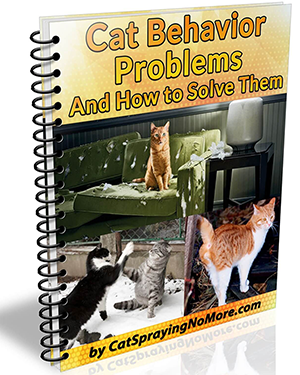How to Feed a cat
Feeding a cat might seem like a simple task, but many cat owners make common mistakes that can harm their feline companions’ health. As a result, it’s crucial to understand the proper feeding practices to keep your cat healthy and happy. In this article, we’ll take a look at some of the common mistakes that cat owners make when feeding their cats and how to avoid them.
Overfeeding your cat
Overfeeding is a common mistake that many cat owners make, and it can lead to obesity, which is a significant health concern for cats. Obesity increases the risk of various health issues, including diabetes, heart disease, and joint problems. Therefore, it’s essential to feed your cat the appropriate amount of food according to its age, size, and activity level.
The amount of food that a cat requires varies based on its age and activity level. Generally, adult cats require about 20 to 30 calories per pound of body weight per day. However, it’s crucial to note that this can vary based on factors such as whether the cat is spayed or neutered, its activity level, and its age. Therefore, it’s important to consult with your veterinarian to determine the appropriate amount of food to feed your cat.
Feeding a diet that is inappropriate for cats
Cats are obligate carnivores, meaning that they require a diet high in protein and low in carbohydrates. Many cat owners feed their cats diets that are inappropriate for them, such as diets high in carbohydrates, grains, and fillers. These diets can lead to various health issues, including obesity, diabetes, and digestive issues.
Therefore, it’s crucial to choose a high-quality cat food that meets the nutritional requirements of cats. Look for a cat food that contains high-quality animal protein as the primary ingredient and is low in carbohydrates and fillers. Additionally, avoid feeding your cat table scraps, as these can upset their digestive system and lead to obesity.
Feeding a one-size-fits-all diet
Not all cats are created equal, and their nutritional requirements vary based on factors such as their age, activity level, and health condition. Therefore, it’s crucial to choose a diet that meets the specific nutritional requirements of your cat.
For example, kittens require a diet that is higher in calories and protein than adult cats. Similarly, older cats may require a diet that is lower in calories and higher in protein to maintain their muscle mass.
If your cat has a health condition, such as diabetes or kidney disease, it’s crucial to choose a diet that meets their specific nutritional requirements. Consult with your veterinarian to determine the appropriate diet for your cat’s specific health condition.
Feeding too many treats
While treats can be a great way to bond with your cat and reward them for good behavior, feeding too many treats can lead to obesity and other health issues. Therefore, it’s crucial to limit the number of treats that you feed your cat and choose healthy, low-calorie options.
Additionally, avoid feeding your cat human foods as treats, as these can be high in calories, fat, and sugar and can lead to digestive issues.
Feeding on an irregular schedule
Cats thrive on routine, and feeding them on an irregular schedule can lead to anxiety, obesity, and other health issues. Therefore, it’s crucial to establish a regular feeding schedule and stick to it.
Most cats prefer to be fed multiple small meals throughout the day, rather than one or two large meals. Therefore, consider feeding your cat small meals throughout the day, rather than one or two large meals.
Additionally, avoid free-feeding your cat, as this can lead to overeating and obesity. Instead, measure out the appropriate amount of food for each meal and feed your cat at regular intervals throughout the day.
Not providing enough water
Cats require a lot of water to stay healthy, and not providing enough water can lead to dehydration and other health issues. Therefore, it’s crucial to ensure that your cat has access to clean, fresh water at all times.
Some cats prefer drinking from a fountain or running water source, so consider investing in a cat water fountain to encourage your cat to drink more water. Additionally, consider feeding your cat wet food, which has a higher moisture content than dry food and can help keep your cat hydrated.
Feeding the wrong type of food for their dental health
Dental health is an important aspect of a cat’s overall health, and feeding the wrong type of food can lead to dental issues such as tartar buildup and gum disease. Therefore, it’s important to choose a cat food that promotes good dental health.
Dry cat food can be beneficial for dental health, as the crunchy texture can help scrape away tartar and plaque buildup. However, some cats may have difficulty chewing dry food, especially if they have dental issues. In this case, wet food or a combination of wet and dry food may be a better option.
Additionally, consider providing your cat with dental treats or toys that promote good dental health and encourage them to chew and clean their teeth.
 A great dental treat for your cat is Emerald Pet Feline Dental Treats would be nice for your cat. My cat really likes these.
A great dental treat for your cat is Emerald Pet Feline Dental Treats would be nice for your cat. My cat really likes these.
Changing the cat’s diet too quickly
Changing your cat’s diet too quickly can lead to digestive issues such as vomiting and diarrhea. Therefore, it’s crucial to introduce new foods slowly and gradually.
Start by mixing a small amount of the new food with your cat’s current food and gradually increase the amount of new food over a period of 7-10 days. This allows your cat’s digestive system to adjust to the new food gradually, reducing the risk of digestive issues.
Additionally, if your cat has a sensitive stomach or digestive issues, consider choosing a cat food that is designed specifically for cats with digestive issues or consult with your veterinarian for recommendations.
Not considering their age and health status
As cats age, their nutritional requirements change, and they may require a different diet than they did when they were younger. Additionally, cats with health conditions such as diabetes or kidney disease may require a specific diet to manage their condition.
Therefore, it’s crucial to consider your cat’s age and health status when choosing a diet and feeding them. Consult with your veterinarian to determine the appropriate diet for your cat’s age and health status and make any necessary adjustments as they age or their health status changes.
In conclusion, feeding a cat may seem like a simple task, but there are many common mistakes that cat owners make that can harm their feline companions’ health. By avoiding these common mistakes and following the proper feeding practices, you can ensure that your cat stays healthy and happy for years to come. Consult with your veterinarian for specific recommendations for your cat’s unique needs and always prioritize their health and well-being.
Learn more about feeding your cat by Cornell University

Leave a Reply